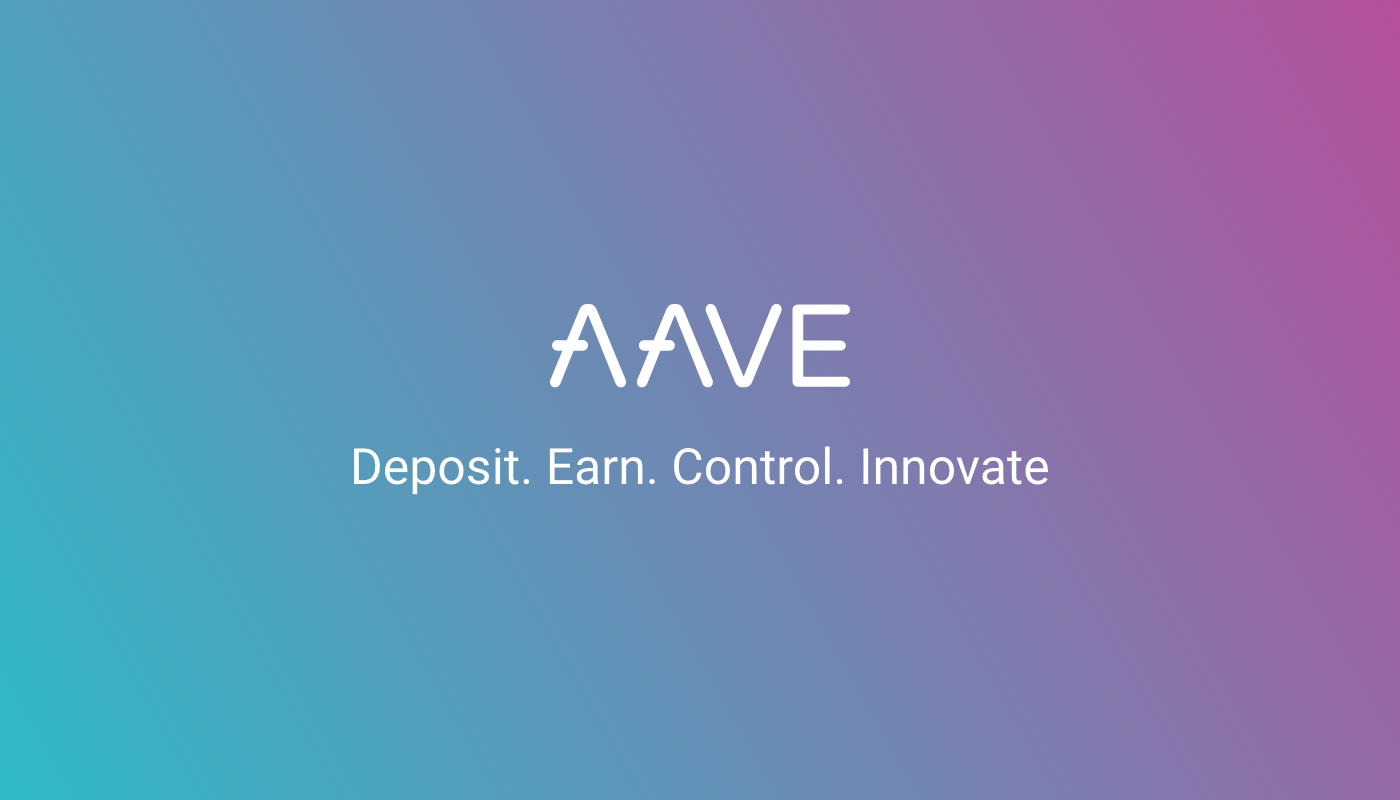The Fair Launch Movement

We’re hosting a live AMA with Matt Finestone of Loopring TOMORROW! Streaming for everyone on Youtube. Full subscribers can join Discord to get VIP access. Starts 12pm EST.
Dear Bankless Nation,
Fair launches are a new type of distribution mechanism.
With fair launches, there’s no special treatment. Everyone does the same work to get the same rights—open to anyone in the world.
No early access, no founder’s allocation, and no “sorry, accredited investors only”.
Equal opportunity.
Obviously cool, but could it be world changing?
Gavin thinks so.
The fair launch movement is just getting started…and it could change everything.
Here’s why.
- RSA
🙏Sponsor: Aave—earn high yields on deposits & borrow at the best possible rate!
WRITER WEDNESDAY
Guest Writer: Gavin McDermott, Investor at IDEO CoLab Ventures
More than a Mechanism, Fair Launch is a Movement
More than fundamentally disruptive, the fair launch will prove to be one of the most important economic developments to emerge from our industry.
Now is an important moment for the fair launch to show itself as more than a path for outliers and experimenters, more than a superficial label we slap on hasty project forks, and certainly more than a simple mechanism that doesn’t always lead to fair outcomes.
But if conversation stays at the surface level—anchoring to imperfect first generation bootstrapping methods (e.g., liquidity mining is for whales only) and mistaking allocation issues with overall viability (e.g., Sushi)—then an emerging generation of founders will overlook one of the most strategic arrows in their quiver.
Under heavy development today, the infrastructure and strategies employed by fair launch founders over the next six to 18 months will seem obvious in hindsight. And as they evolve, the fair launch will become a standard path to market in our industry and beyond.

The Evolution of the Founder-Community Dynamic
The fair launch changes the most important dynamic within our ecosystem: that of the founder and the community.
Up until now, this dynamic was largely determined by venture funds and investors. Why? Because when the only viable option to bring networks to market required a capital raise, venture funds became the largest shareholders.
It should come as no surprise, then, that the founder-community dynamic absorbed attributes of the founder-investor relationship.
While this is an acceptable setup, it is far from ideal. Yes, a shared desire for the network to succeed exists between the two parties. But a specific tension arises when a majority of the network is owned by parties whose fiduciary duty is to their source of capital—not to the network itself. Sometimes these interests are aligned, but make no mistake about who gets priority when the music stops.
As a result, founders naturally question the long-term alignment between the network and the network's largest owners (lockups anyone?).
Understanding the Mismatch
With this context, we can revisit one of the core questions at the heart of the founder-community dynamic: Why do founding teams give themselves early allocations and pre-mines?
The answer is simple: lack of trust.
Founders don't fully trust the community to grant them a meaningful share of the network they built as compensation for their effort—or incentive for future work.
And can you blame them?
The existing lack of trust between founders and communities is (in large part) a side effect of grafting yesterday's investment structures onto tomorrow's networks for economic coordination.
It was a mismatch from the start, but we didn't have anything better. Until now.
With a fair launch, you have the ability to design a wide array of network bootstrapping and distribution approaches, which can ultimately result in a community dynamic where fiduciary duty and long-term network goals are one and the same. Choosing a fair launch provides an opportunity to decouple from a decaying dynamic and realign the interests of your most fundamental relationship.
The fair launch is network-native and fit-for-(a-different)-purpose. And while I don't expect every investor to agree with this sentiment, I do hope you'll keep in mind that most investor arguments stem from a (natural) historical overweighting of the investor’s importance in the process of bringing new projects to market.
I'm not claiming that venture investing in crypto suddenly has no place*.
The evolution of the fair launch will take time, and good people around the table will always be important. But consider the fact that if the network is economically viable and the community is vibrant, those good people will be around the table regardless. They'll just participate to earn their position like the rest of the community.
Reducing Risk for Future Fair Launch Founders
Establishing a new set of behavioral norms—where founders and communities work more fluently together—is of paramount importance to the future of fair launches. Because until better norms are established, the fair launch will be perceived as a higher risk option for founders to take.
In order to improve the conditions for a new round of further risk-reduced fair launches, we need to establish new founder-community behaviors, including:
- Creating early ownership allocation strategies that founders and contributors can rely on,
- Quickly establishing incentives for future work,
- Lining up smart contract (and sometimes economic) audits, and
- Paying successes forward.
This moment in fair launch history is about establishing new forms of economic collaboration and coordination.
As we have more public examples of successful fair launches to reference—ones where the community also acts in the best interests of the founders—we summarily establish new models for community formation and relationship.
In the new model, founders don't worry about shipping a fair launch network because the behavioral defaults and playbooks will include meaningful compensation for founders. In the new model, any community that doesn't behave according to the emerging set of healthier norms will signal as a negative growth indicator to future members and contributors. The economics will work themselves out.
The fair launch is a trail to blaze, and the proof points you create will be relied upon by those who follow in your footsteps.
By deciding to become an early fair launch founder, you take on the risk of designing new mechanisms and forging a new path. But by actively creating a new way for future founders to bring their ideas to life, you shape the future—the project topology—of the entire ecosystem.

A Call to Build This Alternative Ecosystem
At this point in history, the number of fair launch founders can be counted on a few fingers. But that's about to change in a big way.
Based on the many conversations we've had about fair launches with founders around the world, I believe that for every founder who wants to raise traditional capital today, there exists at least one (likely more) high-quality, crypto-native founder who will emerge to form a first generation of fair launch founders.
Take a moment to consider the environment for these pioneers. Working together yet independently, this first generation will be building an alternative network ecosystem from the ground up, right alongside the existing venture-backed one.
In actuality, they're creating economically significant proof points to show the viability of the fair launch model—and that YFI wasn't just a flash in the pan.
Here are a few key benefits of this alternative ecosystem:
Aggressive Decentralization
Progressive decentralization is a useful approach to employ when gradually turning network ownership over to the community. But it assumes a centralized start. Due to emerging dynamics and behaviors, fair launch projects have the opportunity to start with a small core team and a fully decentralized, highly engaged community. Progressive decentralization is absolutely viable, but the fair launch approach works from a different set of assumptions.
Organic Community by Default
The traditional path provides capital, but forces founders to build a community from the ground up. Manually kickstarting a community is a herculean endeavor, and imbalanced economics don't make it easier. A fair launch provides capital, but simultaneously creates the fertile soil to grow an organic, vibrant community from the outset—using economics that are more balanced. Today's crypto communities are becoming more capable governors by the block, and their confidence in operating wholly owned protocols grows stronger with every vote.
Which foundation do you think this emerging breed of active community governors is most likely to build on?
Two-Sided Demand
Fair launches are working with significant tailwinds, as they are in demand from both sides of the market. As a founder, you're able to ship quickly, skip the traditional fundraise process, and improve overall token distribution. On the other side, your community receives better participation incentives, no VC overhang, and reduced smart contract risk. Demand for more fair launches comes from both sides of the market because it improves multiple, critical dimensions.
Built for You and Your Community
Crypto adopted the role of reducing (financial) gatekeepers at inception. So, I consider its continued reduction of traditional capital formation processes to be an expansion of its original mandate.
Ultimately, the fair launch enables you to bring your project to market without the traditional capital barriers and risks associated with deviating from a standard path. It exists to support you in building what you want to build, for whom you want to build it—all the while reducing external pressures that can mutate your intent.
With a fair launch, you build for yourself and for your community.
Expanding Beyond DeFi
The fair launch emerged from DeFi because of this ecosystem's composability and readiness to experiment with novel bootstrapping mechanisms. But I believe the fair launch to be a far bigger movement than most people think. Stated directly:
The fair launch approach will become one of crypto's most important creations, eventually finding application in many other domains.
Let’s take the Ownership Economy as an example. Here we have an ecosystem where the communities are owners and governors of physical/digital products and experiences. And while financial markets come into play, it is a meaningfully different world compared to DeFi. However, these adjacent ecosystems have an important intersection: infrastructure.
And shared infrastructure is the key.
As founders and communities in the Ownership Economy see what's being done with the fair launch in DeFi, a handful will experiment in porting fair launch dynamics into their own communities. Thanks to shared infrastructure and composability, this can happen quickly, and the fair launch will spread.
If fair launch mechanisms and strategies create a number of economically significant networks and products across a few ecosystems, I expect a number of less obvious domains to follow suit. Why? Because for a large class of founder-community-based networks, the benefits and flexibility bestowed by a fair launch will be in demand. So while it may seem niche today, with parallel movements like Exit to Community continuing to strike a chord, the fair launch (if fully developed) will impact founders and communities far beyond DeFi.
From one perspective it may be hard to see through the whale games and exit scams where the term ‘fair launch’ has been applied. I completely understand the existing skepticism. But when you step beyond surface level conversation, you find the core of something that—while far from perfect today—can meaningfully evolve and restructure our existing ecology’s primary power dynamics.
And from this perspective, the fair launch is more than a collection of mechanisms.
The fair launch is a movement.
Fair Launch
Looking to improve or implement a fair launch? Join Reuben, Joe, and I in exploring the fair launch through fair launch capital. DMs are open on Twitter and Telegram (@gavmcd).
Footnotes
* Traditional venture investing in the cryptocurrency domain absolutely has its place today (e.g., highly complex or multi-year builds). But its historical requisite position in the ecosystem will undoubtedly be changed by primitives whose primary function is to reduce existing process and overhead.
Action steps
Reach out to Fair Launch Capital if you’re considering a Fair Launch
More takes on Fair Launches
Author Bio
Gavin McDermott is an investor at IDEO CoLab Ventures, a fund focused on early-stage web3 startups. He’s also actively engaged with Fair Launch Capital, a community resource providing free access to capital for new Fair Launch networks & projects.
Subscribe to Bankless. $12 per mo. Includes archive access, Inner Circle & Badge.
🙏Thanks to our sponsor
Aave
Aave is an open source and non-custodial protocol for money market creation. Originally launched with the Aave Market, it now supports Uniswap and TokenSet markets and enables users and developers to earn interest and leverage their assets. Aave also pioneered Flash Loans, an innovative DeFi building block for developers to build self-liquidations, collateral swaps, and more. Check it out here.

Not financial or tax advice. This newsletter is strictly educational and is not investment advice or a solicitation to buy or sell any assets or to make any financial decisions. This newsletter is not tax advice. Talk to your accountant. Do your own research.
Disclosure. From time-to-time I may add links in this newsletter to products I use. I may receive commission if you make a purchase through one of these links. I’ll always disclose when this is the case.